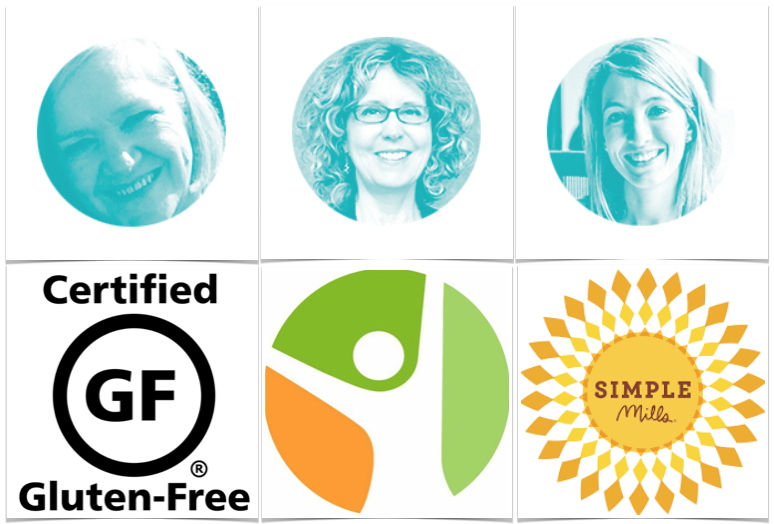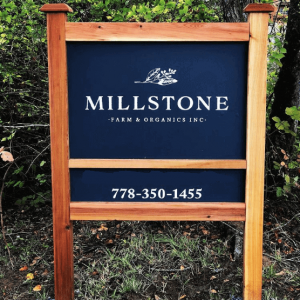Three Experts on Celiac Disease Weigh in on Misconceptions About Going Gluten-Free

Cynthia Kupper, RD / CEO, Gluten Intolerance Group – Marie Robert, MD / Beyond Celiac Chief Scientific Officer – Katlin Smith Founder & CEO, Simple Mills
Three experts answer four common questions about celiac disease and the gluten-free diet. 1
- What are the first steps a person should take when diagnosed with celiac disease?
- What are some misconceptions about a gluten-free diet?
- How effective is a gluten-free diet for a person with an autoimmune disease such as celiac?
- What advice would you offer to a person who is living with celiac disease?

Cynthia Kupper, RD CEO, Gluten Intolerance Group
Cynthia Kupper, RD CEO, Gluten Intolerance Group
What are the first steps a person should take when diagnosed with celiac disease?
The gluten-free diet may seem daunting if you attempt to master it in one step. As with anything new, it is best to take small steps as you seek out knowledge and resources. Elaine Hartsook, Ph.D., RD, founder of the Gluten Intolerance Group, once used an upside-down triangle to illustrate the point that there are obvious things that make those with gluten-related disorders ill and there are the not so obvious things. Start by eliminating obvious problem foods, learn to carefully read labels to find less obvious sources of gluten and finally seek information from reliable and knowledgeable sources about cross-contamination and other things to consider. Build from the obvious to become proficient in the diet.
What are some misconceptions about a gluten-free diet?
The gluten-free diet is sometimes promoted as a way to lose weight, or as a healthier diet for the general population. These claims are unfounded. The gluten-free diet is healthier for people with gluten-related disorders (celiac disease or gluten sensitivity), but there is no solid research that indicates it benefits people who do not have these conditions. In fact, many processed gluten-free foods contain higher levels of fat and/or sugar to compensate for flavor and texture changes which result from the removal of gluten.
How effective is a gluten-free diet for a person with an autoimmune disease such as celiac?
Recommended treatment for an autoimmune disease varies from disease to disease. Strict adherence to a gluten-free diet for life is the only treatment currently available for celiac disease. This involves elimination of wheat, barley, rye and foods made with these grains or their derivatives from the diet. Medication is not required unless there is an accompanying condition, such as osteoporosis or dermatitis herpetiformis. Thriving or showing improvement on the gluten-free diet is the second half of the “gold standard” of diagnosis.
What advice would you offer to a person who is living with celiac disease?
Education is essential to success in following a strict, gluten-free diet. Learning what foods to avoid, how to read packaging labels, as well as what to look for and questions to ask to make sure you can safely eat food in a restaurant or food service are all required. It is also beneficial to seek out support from others in your local gluten-free community, such as Gluten Intolerance Group’s support group branches and Generation GF groups for teens and young adults. Additionally, look for gluten-free certified products and restaurants, such as those certified by GIG’s Gluten-Free Certification Organization and Gluten-Free Food Services Certification programs.

Marie Robert, MD Chief Scientific Officer, Beyond Celiac
Marie Robert, MD Chief Scientific Officer, Beyond Celiac
“Many naturally gluten-free foods, such as fresh produce, legumes, lean meats and low-fat dairy products can support a healthy diet.”
What are the first steps a person should take when diagnosed with celiac disease?
First, don’t panic. Getting a celiac disease diagnosis may turn your world upside down. Learn all you can about the disease and gluten, so that you can safely and quickly eliminate wheat, rye and barley from your diet at home and when dining out. If possible, find a dietitian that specializes in celiac disease. Learn to read package labels with an eye to spotting hidden sources of gluten. Research restaurants before you go to see if they can offer meals free from cross-contact with gluten-containing ingredients. It’ll get easier with practice.
What are some misconceptions about a gluten-free diet?
For someone who doesn’t have a medical necessity for it, the gluten-free diet is not necessarily any healthier than a gluten-containing diet. To improve taste and texture, gluten-free packaged items may be higher in fat and sugar. Many naturally gluten-free foods, such as fresh produce, legumes, lean meats and low-fat dairy products can support a healthy diet.
There’s also the myth that gluten-free food tastes bad. Not true! There are now many gluten-free items in stores that are tasty. What’s more, many a home cook and skilled restaurant chef can create gluten-free feasts that will have everyone asking for seconds.
How effective is a gluten-free diet for a person with an autoimmune disease such as celiac?
Results vary. Some people experience a complete turn-around, going from very sick to well in a matter of days or weeks. However, studies in recent years suggest that up to 30 percent of people don’t improve and are referred to as having non-responsive celiac disease. While the causes of a less-than-complete response are not always known, in many, it likely reflects the difficulties of remaining entirely gluten-free. For some, even small amounts of unintended gluten exposure can result in continued damage to the intestine. For this reason, the development of additional therapies for the treatment of celiac disease will be very welcome.
What advice would you offer to a person who is living with celiac disease?
For now, the best thing you can do is to fully embrace living as gluten-free as possible. While there may be some temptation to occasionally eat or drink one of your old gluten-containing pre-celiac diagnosis favorites, doing so could ignite your autoimmune response — even if you don’t get symptoms — which can leave the door open to other serious health consequences. I’d also encourage you to add your voice to the growing online community that is telling its story and pushing for treatments that will let us go beyond celiac.

Katlin Smith, Founder & CEO, Simple Mills
Katlin Smith, Founder & CEO, Simple Mills
“Many people mistakenly believe that all gluten-free foods are healthy, and that foods without gluten don’t have taste appeal. Neither is true.”
What benefits have you personally experienced from following a gluten-free diet?
I had suffered from issues with immunity since high school. When I was 24, a friend suggested that I try eliminating highly processed foods and allergens like wheat to see if that helped. Within just a few days, I started feeling better and had more energy. My aches and pains disappeared. Things I thought were “normal” didn’t have to be. I have avoided gluten ever since.
What are some misconceptions about a gluten-free diet?
Many people mistakenly believe that all gluten-free foods are healthy, and that foods without gluten don’t have taste appeal. Neither is true. On the health front, many gluten-free products contain artificial flavors and fillers, GMOs, excessive sugar and other ingredients that don’t fit today’s standards for healthy eating. In the taste department, creative use of ingredients and brands that place equal emphasis on clean recipes and topnotch taste have made a big difference, even attracting large numbers of consumers who have not eliminated gluten but steer clear of long/artificial ingredient lists. Top-selling brands could not have achieved their market share without delivering a combination of quality ingredients and quality taste.
What advice would you offer to a person who is living with celiac disease?
First and foremost, find a physician who is an expert in celiac disease and autoimmune disorders. I am not a doctor, so I can’t speak to the efficacy of a gluten-free diet in autoimmune disease treatment and I want to underscore the importance of having a good physician who can help manage your disease. Beyond that, anyone who follows a gluten-free diet out of either medical necessity or dietary preference should look for products that have a short ‘plain English’ ingredient list, are naturally gluten-free, and have gluten testing seals indicating that the producer tests for gluten in the manufacturing process. A recognizable ingredient list, with items you would find in your own pantry, is especially helpful in minimizing the risk of hidden sources of gluten.
1 https://www.futureofpersonalhealth.com/education-and-research/three-experts-on-celiac-disease-and-the-misconceptions-about-going-gluten-free













